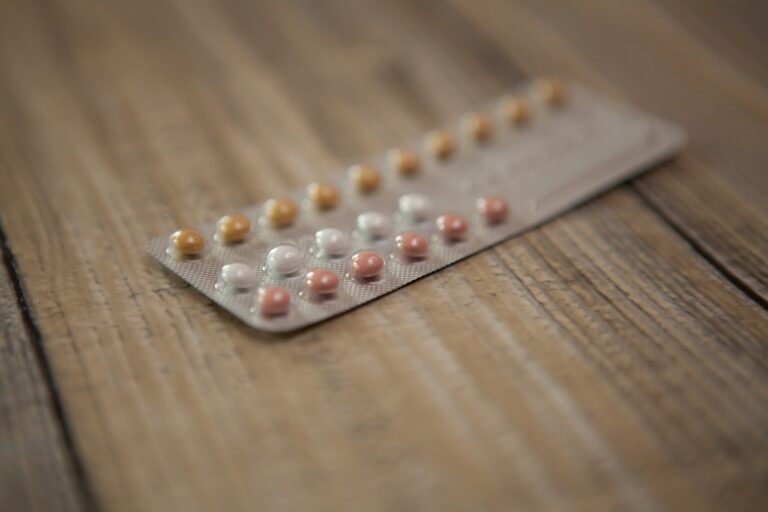Women who are experiencing low libido may benefit from hormone therapy. This treatment restores balance to estrogen and testosterone levels, which are directly linked to menopause symptoms like vaginal dryness and hot flashes that can interfere with sexual interest and arousal.
HRT is available in tablet form or as a gel you apply to your skin. It also comes in a pessary and ring that can be inserted in your vagina.
Testosterone
Testosterone is the primary sex hormone for males. It’s also an important anabolic steroid that promotes secondary masculine characteristics, including facial hair growth and voice deepening. It’s involved in sexual function, sperm production, bone density and muscle mass maintenance, fat metabolism and stimulates protein synthesis. It helps with bone development and hematopoiesis (blood production).
While testosterone is primarily associated with men’s libido, women have it too. A woman’s ovaries produce it in addition to estrogen and progesterone. Low levels of this hormone have been linked to a decrease in sex drive, although it’s not entirely clear why that happens. Some doctors believe it’s a result of birth control pills, which may bind to and reduce a woman’s libido. Others speculate that it’s a result of the natural decline in hormones that occurs during premenopause and menopause.
Testosterone replacement therapy is often recommended as a treatment for men with low libido. It can help improve symptoms of low testosterone, including erectile dysfunction, by balancing out the natural imbalance of hormones. It can also boost overall energy levels and maintain lean body mass, while improving moods and enhancing focus and memory. It is also effective for women with low libido, though it’s important to weigh the benefits against possible risks, such as increased blood pressure and cholesterol. In general, women with a low libido should work on other lifestyle changes, such as eating healthy, exercising regularly and turning off the Blackberry when they’re in the presence of their partner.
Estrogen
Estrogen is the primary female hormone, helping regulate the menstrual cycle, controlling the development of female sex organs and thickening the uterine lining to support pregnancy. However, as a woman approaches menopause and moves through perimenopause, the levels of estrogen begin to decline. This can cause a wide variety of symptoms including mood changes, hot flashes and vaginal dryness that can make intercourse painful and uncomfortable. Estrogen can be prescribed in pill form as part of a hormone replacement therapy plan, often called HRT.
Studies have shown that the loss of circulating estrogen correlates with the decline in sexual desire associated with menopause. This is because the ovarian steroids are converted into estrogen by the aromatase enzyme, which also binds to androgens like testosterone. A number of double-blind randomized trials have demonstrated that estrogen-only hormone therapy can improve sexual function, including libido in postmenopausal women (Dennerstein, 1980; Hays et al., 2003; Myers et al., 1990; Nathorst-Boos et al., 1993; and Alexander, 2004).
Estrogen can be helpful for a variety of health issues as well, including cognitive health, bone health and the function of the cardiovascular system. It is important to note, however, that a balanced sex hormone regimen is required for the best results and focusing solely on estrogen alone is not going to be the solution. If you are suffering from low libido, please schedule an appointment with Cool Springs Gynecology in Brentwood, TN to learn more about your options for hormone therapy.
Progesterone
Progesterone is a steroid hormone that creates a healthy uterine lining to prepare the body for pregnancy. It rises after ovulation in the second half of your menstrual cycle and increases during pregnancy. It also inhibits muscle contractions in the fallopian tubes and encourages breast growth to prepare for milk production. A serum progesterone test measures the level of this hormone in your blood.
When progesterone is high, your libido is likely elevated as well. This is because estrogen and progesterone work together to create a healthy desire for sex. A decline in the levels of these two hormones is what leads to low libido for many women during perimenopause and menopause.
HRT can help restore a normal balance of these hormones and increase libido in both men and women. If you’re interested in learning more about how HRT can enhance your life during menopause, schedule an appointment at Cool Springs Gynecology in Brentwood.
When you arrive, a nurse will draw a small amount of blood from your arm. This will probably cause a slight pain or throbbing sensation. Make sure to tell your provider if you are taking any medications. It’s important to do this before you begin any treatment. These medicines may interfere with the results of your blood test.
Human Growth Hormone
HGH is a natural hormone in the body that stimulates cell reproduction and regeneration. It is also thought to enhance libido in both men and women by improving blood flow and increasing energy levels. In addition, it is believed that HGH improves sexual performance in patients with erectile dysfunction.
However, it is important to note that growth hormone therapy is not a quick fix for low libido. In many cases, other factors, such as stress, illness, or medications can contribute to low libido. Therefore, it is important to work with a doctor to address all potential causes of low libido.
Testosterone and estrogen are the main sex hormones that affect sexual desire in men and women. In fact, men with lower than normal levels of testosterone are often diagnosed with low libido.
For women, a combination of estrogen and progesterone can help to restore libido after a hormonal imbalance caused by menopause. A new treatment, called sermorelin acetate, is also promising for enhancing libido in men with low levels of the hormone.
In addition to addressing hormone levels, lifestyle changes can also significantly improve libido. Regular exercise, a healthy diet, and avoiding alcohol and drugs can all help to boost libido. In addition, a good sleep schedule and reducing stress levels can all contribute to improved libido.
See Also:



